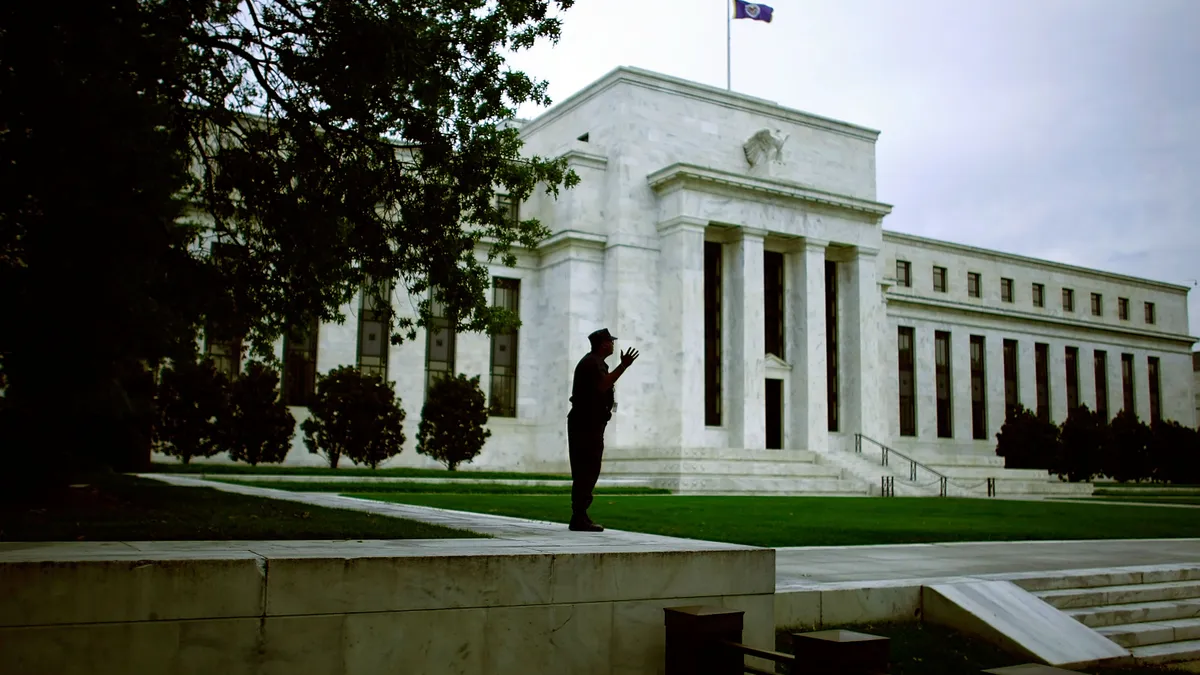Dive Brief:
- A U.S. digital dollar poses too great a threat to the nation's banking system to be deployed, the American Bankers Association (ABA) and Bank Policy Institute (BPI) said in separate letters Friday.
- A central bank digital currency (CBDC) would serve as advantaged competition for retail bank deposits, depriving banks of funding and restricting credit availability in the U.S. economy, the trade groups each argued.
- Even if the Federal Reserve were to cap CBDC accounts at $5,000 per “end user,” the ABA estimates the deployment of digital central bank money could cause $720 billion in deposits to leave the banking system.
Dive Insight:
Comments from the two banking trade groups came Friday, the last day they would have been accepted in relation to the Fed's 40-page January report concerning the development of a CBDC.
“As we have evaluated the likely impacts of issuing a CBDC, it has become clear that the purported benefits of a CBDC are uncertain and unlikely to be realized, while the costs are real and acute,” the ABA said in its letter.
The trade groups allege that the deployment of a CBDC would pose a threat to retail bank deposits, which comprise 71% of bank funding today, according to the ABA.
Today, only 5% of money in the U.S. is held in cash and accounts at the Federal Reserve, and 95% is held by private institutions, generating additional economic output through bank lending activity. A CBDC would shift the balance toward public money held by the Fed, pulling money out of the banking system and eventually reducing credit availability and raising credit costs in the economy, the trade groups argued.
“[B]y attracting deposits away from banks, particularly during a period of economic stress, a CBDC likely would undermine the commercial banking system in the United States, and severely constrict the availability of credit to the economy in a highly procyclical way,” the BPI said in its letter.
Under the intermediated, account-based model the Fed outlined in the January CBDC report, consumers would hold their digital money in an account at a bank or other financial institution, but that institution would be unable to use the funds in the account to invest in the economy.
Rather than develop a digital dollar, the ABA urged the Fed to avail itself of private-sector innovation.
“If ... our objective is to realize the benefit of technological innovation, we should look to leverage novel developments in private money (like real-time payments systems and well-regulated stablecoins),” the ABA said. “Private-sector innovation in banking and payments has made a significant contribution to establishing the U.S. dollar as the reserve currency of the world and is best positioned to support the dollar’s preeminent position in the years to come."













